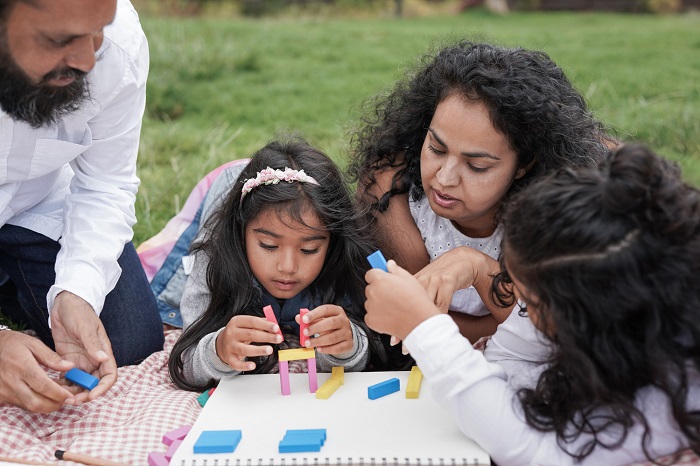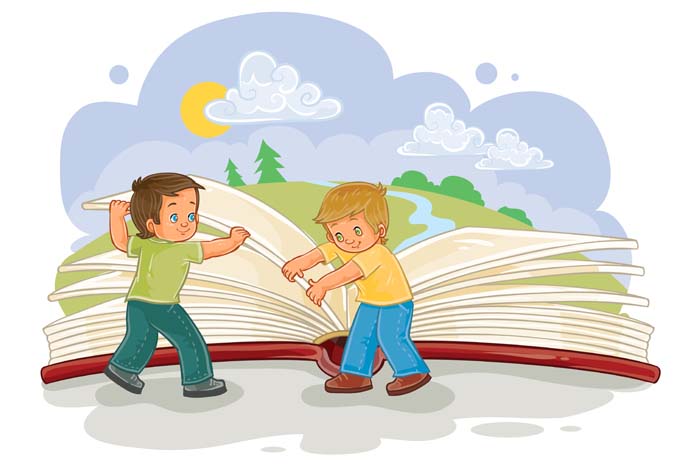Just because your child isn’t in elementary school yet doesn’t mean they haven’t begun their educational journey. Fun indoor learning activities for two-year-old kids can help them begin learning the fundamentals of arithmetic, reading, science, and even engineering and social studies. The majority of these activities can be done with stuff lying around the house (making them convenient to enjoy each time there’s an unexpected rainy day and you’re looking for some fun home activities for the kids). Even if they haven’t landed up in school yet, with a little effort from your side, they’ll be counting, reciting letters, and sorting their toys by color or form in no time.
Which learning activities are best for kids?
Play school : You are your child’s teacher when they are at home. But it doesn’t have to feel like you’re in an online preschool class. Disguise learning activities as a pleasant time to get your kids interested in learning something new. Try out fun and useful activities to teach your child something new everyday.
Give your meals a math boost : Meal preparation is an excellent opportunity for kids to practice counting, measuring, comparing, and recognizing shapes. Assign your youngster the task of measuring and counting ingredients (cups), calculating what number of plates and utensils are required for the entire family, and determining who has more mashed potatoes than everybody else. You can also use math to help your child with cleanup:
● Ask them to name the dishes and sponges by their forms.
● Count the number of steps they took to accomplish the chore.
● Estimate the number of dishes that will fit in the dishwasher.
Cardboard box train : Get your cardboard boxes out and start creating! Let your imagination run wild. A railway, vehicle ramps, an aeroplane, or a home are all items that can be made from boxes. Of course, your child will prefer them over online kindergarten classes.
Word/Definition memory game: Write new vocabulary words on one card, definitions on another, and then play a traditional memory game. You can also do this with synonyms and antonyms.
Develop counting skills: It may seem that teaching your child to count is straightforward, but repeating numbers in the proper order is simply the first step.
Play a game that allows kids to physically touch the items they’re counting and teaches them how to count in ways that are more effective than online playgroup lessons. Children with superior counting abilities can play a variant of the game that requires them to go beyond counting to three and consider the number of items they see in front of them.Create a website : That magical box on your desk is a portal to new knowledge. Turn on the computer and work together to develop a website. Although preschoolers may not be the finest web designers, they are not too young to have their own website. They may shoot photographs for their site, tell you what they want to say on their blog, and learn how to make a website function properly with your assistance.
You may revamp the site with them when they’re older and hand over the keys without having to do as much for them. School-aged children can manage most features of a website, which will aid in the development of their writing and critical thinking abilities. You can also educate kids on how to remain safe online.
Plant a Garden: There’s more to gardening than putting a seed in the ground and waiting for it to sprout. Gardens combine science, nutrition, and patience into a single patch of earth in your backyard. Preschoolers can learn how plants come to life in a garden. It’s also a simple method to teach them about nutrition and encourage them to consume his produced veggies. In addition, school-aged youngsters can keep a gardening notebook, learn how to identify plants by their scientific names, and cultivate more challenging species.
Conclusion
Babies are born with the ability to learn, and their brains grow as they add new experiences. As a result, your child needs a dynamic atmosphere with numerous opportunities to play and learn. A baby also needs plenty of opportunities to put what they’ve learned into practice. When babies and infants have warm, active, and responsive connections with their primary caregivers, they learn best. You have a critical role to play in assisting your child’s learning throughout these formative years. You are your child’s first teacher, and as they grow older, they will continue to learn from you.














